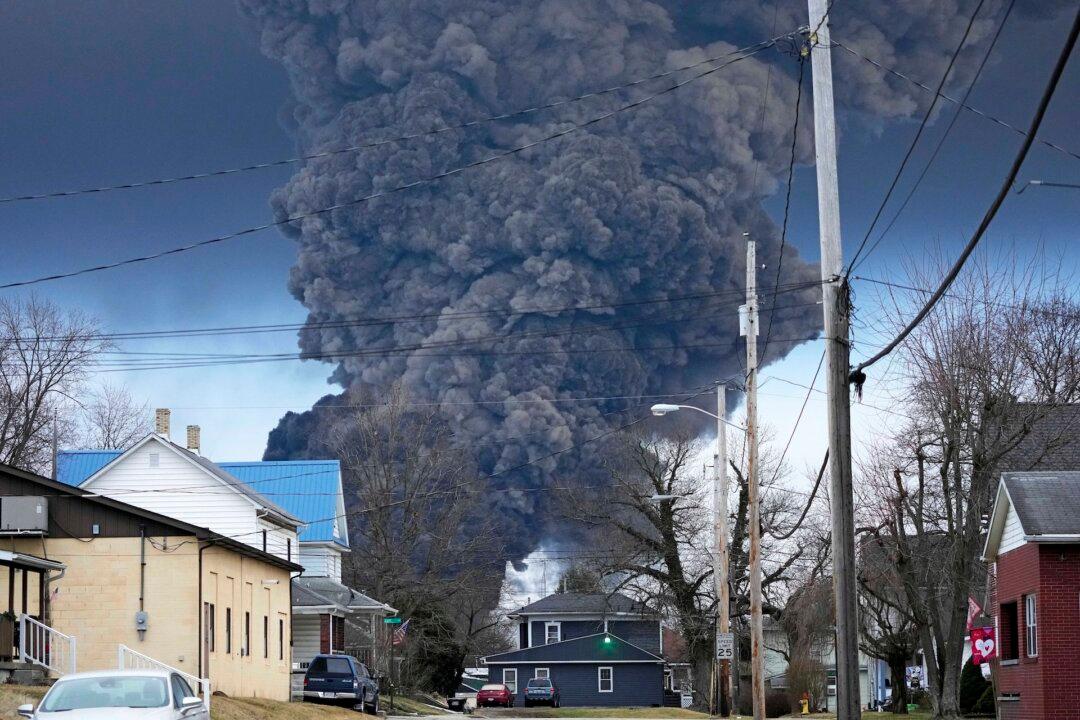Rep. Bill Johnson (R-Ohio), co-sponsor Rep. Emilia Sykes (D-Ohio), and other Ohio U.S. representatives introduced the Reducing Accidents in Locomotives (RAIL) Act at a March 30 press conference hours after a BNSF Railway train carrying ethanol derailed and caught fire in Raymond, Minnesota.
Residents near the crash site were evacuated. No injuries were reported, and the derailment’s cause is under investigation, BNSF reported.





